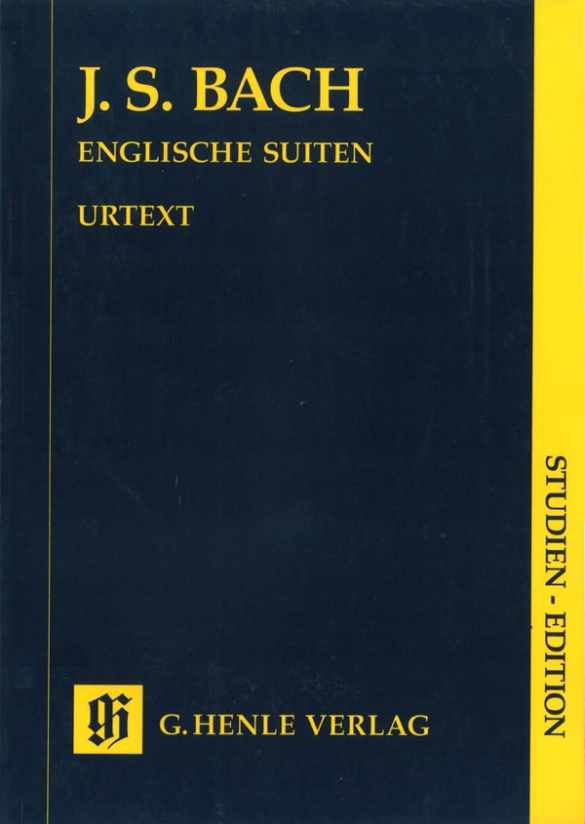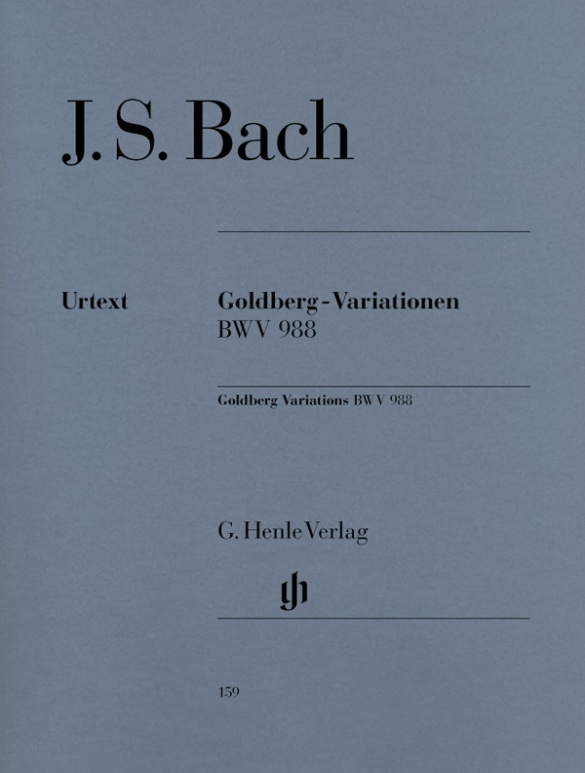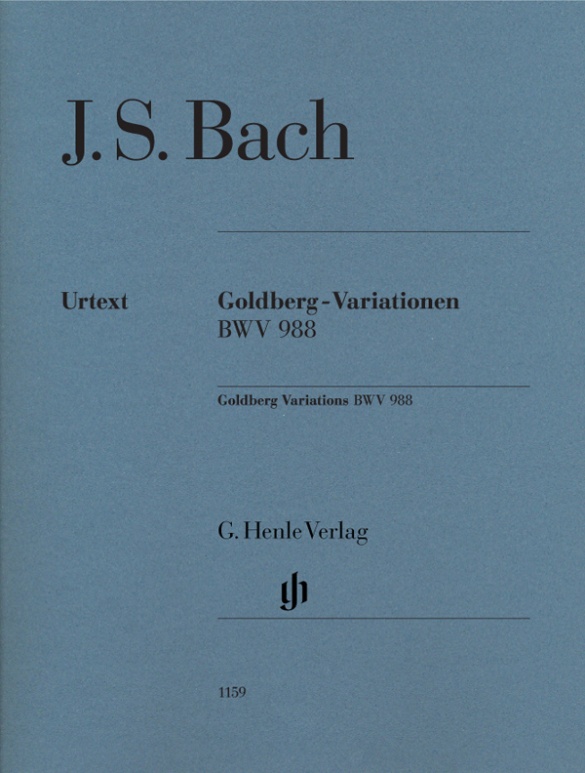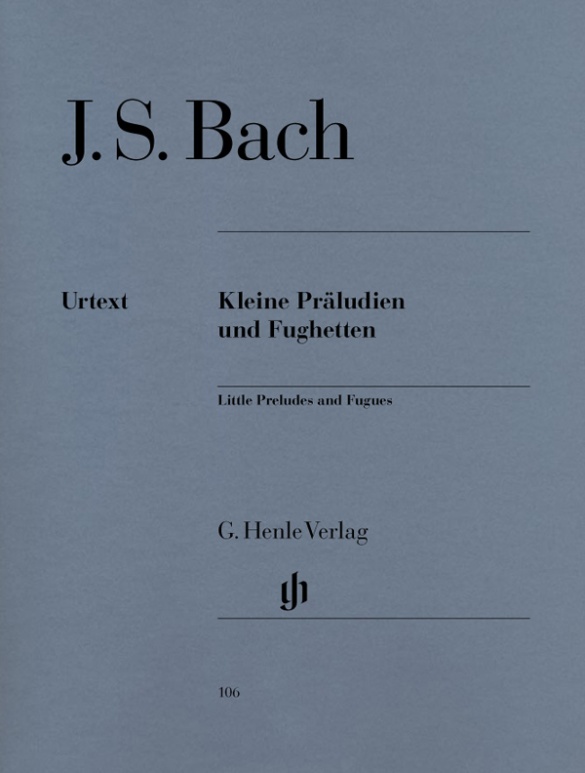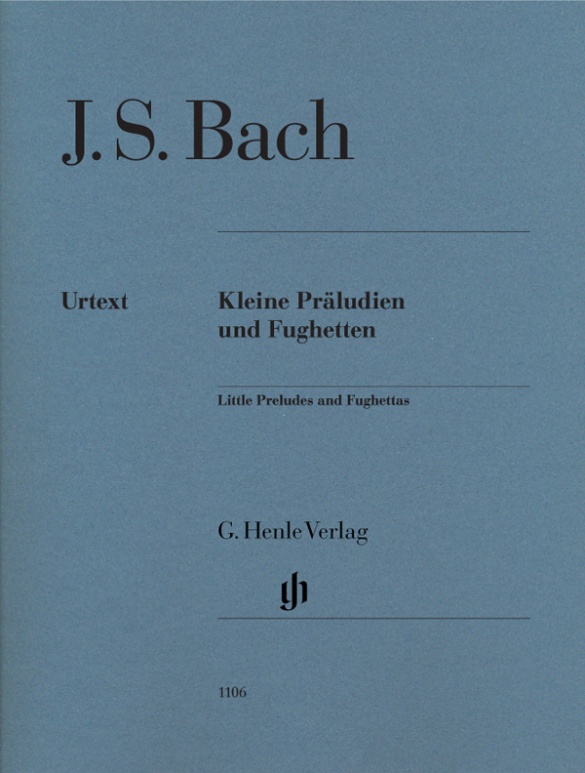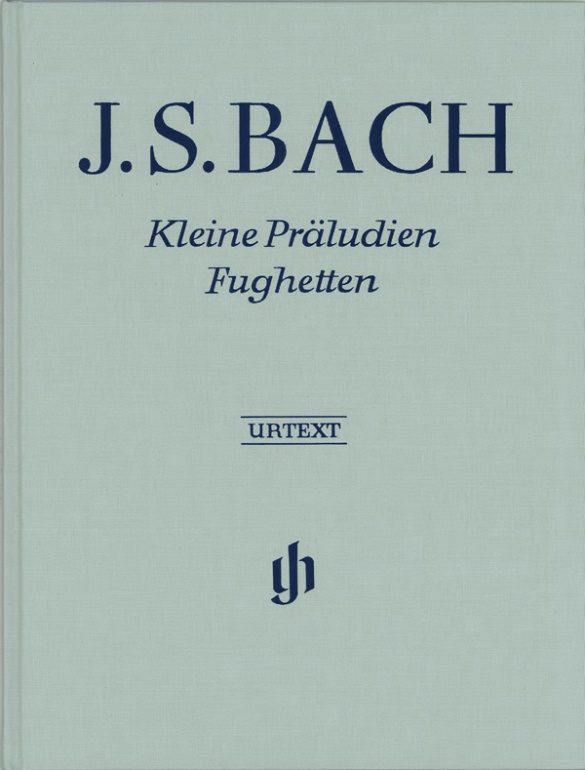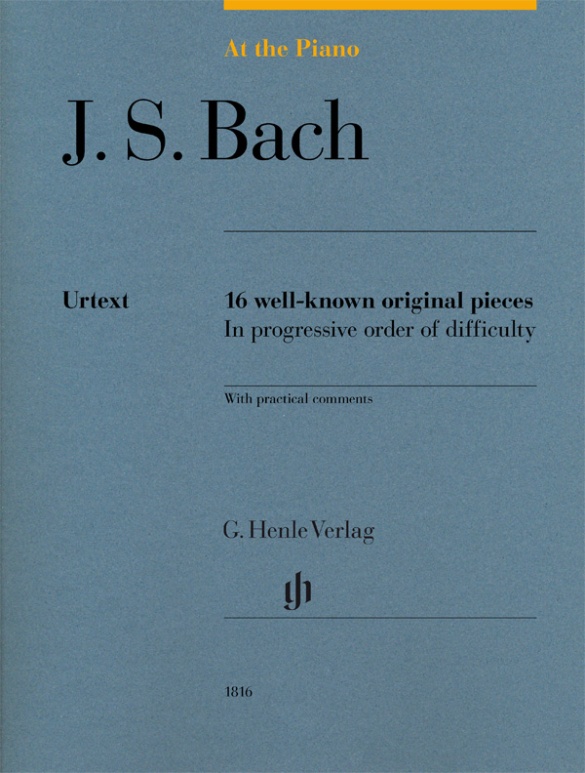Johann Sebastian Bach
English Suites BWV 806-811
>
内容/詳細
作曲家について
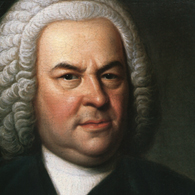
Johann Sebastian Bach
For many musicians he is “the Alpha and Omega of all music” (Max Reger). Except for operas, Bach composed masterpieces for every ensemble and genre of his age. His catalogue of works contains almost 1,100 entries, including the great Passions of St. Matthew and St. Johan, the Goldberg Variations, the Brandenburg Concerti, or hundreds of singular cantatas. As organist in Mühlhausen and Weimar he creates primarily organ compositions, concerti, and works of chamber music. Later, as music director in Köthen and for the decades he serves as cantor in Leipzig, he composes chiefly sacred vocal compositions and keyboard works. His later, contrapuntally complex compositions exert an enormous influence on the compositional styles and practices of later generations.
| 1685 | Born in Eisenach on March 21, the son of conductor and court musician Johann Ambrosius Bach. |
| 1693–95 | He attends the Latin school in Eisenach. |
| 1695–1700 | Enrolls at the lyceum in Ohrdruf, where he will live with his eldest brother, Johann Christoph, after the death of his parents; among other things, organist, and pupil of Pachelbel. |
| from 1700 | Member of the Lüneburg matins choir. Travels to Hamburg to hear Reincken at the organ. |
| 1703 | Appointment in Weimar for two quarters of a year (at the home of Duke Johann Ernst the elder). |
| 1703–07 | Organist in Arnstadt. Composition of organ works, possibly early preludes and fugues BWV 531, 549a, 575; chorales from the Neumeister Collection BWV 1090–95, 1097–1120; chorale partitas BWV 766–68, 770. |
| 1705 | Journey to Buxtehude in Lübeck. |
| 1707–08 | Appointment as organist at St. Blasius in Mühlhausen. Composition of his first cantatas (BWV 71 and 131, likely also BWV 4, 106, 150, 196). |
| 1708–17 | Appointment in Weimar as organist to Duke Wilhelm Ernst of Saxe-Weimar; composition of the Little Organ Book, BWV 599–644; of preludes (toccatas, fantasias) and fugues (probably BWV 894, 903, 944, 910–916); the Passacaglia in C minor, BWV 582; the Pièce d’Orgue in G major, BWV 572; organ transcriptions of instrumental concerti including Vivaldi’s “L’Estro Armonico.” From 1714 concertmaster, composer of cantatas. |
| 1710 | Birth of Wilhelm Friedemann Bach. |
| 1714 | Birth of Carl Philipp Emanuel Bach. |
| around 1713 | Premiere in Weissenfels of the cantata “Was mir behagt, ist nur die muntre Jagd!”, BWV 208. |
| 1717–23 | Appointed “Court Kapellmeister and Director of the royal chamber music” in Köthen to Prince Leopold von Anhalt-Köthen. He mainly composes keyboard music (completes the English Suites, BWV 806–811; begins the French Suites, BWV 812–817 around 1722; the “Clavier-Büchlein vor Wilhelm Friedemann Bach” from 1720; the “The Well-Tempered Clavier,” Book 1, in 1722; the first notebook for Anna Magdalena Bach from 1722; Inventions and Sinfonias for keyboard, BWV 772–801, in 1723), chamber music (Sonatas and Partitas for solo violin, BWV 1001–1006, in 1720), concerti (Brandenburg Concerti, BWV 1046–1051, dedicated to the Margrave of Brandenburg, in 1721); a few secular cantatas (including BWV 134a, 173a). |
| 1723–50 | Cantor at St. Thomas Church in Leipzig. |
| 1723–29 | First Leipzig period, primarily defined by liturgical compositions. |
| 1723/24 | First year’s cycle of cantatas: integration of existing cantatas from his time in Weimar and Köthen; parody techniques, that is, replacing the texts of the cantatas for new purposes. |
| 1724 | Performance of the St. John Passion, BWV 245, and the Magnificat, BWV 243a. |
| 1724/25 | Second year’s cycle of cantatas, with new compositions. |
| 1726 | Publication of the first Partita from the later Clavier-Übung (Keyboard Practice), BWV 825–830. |
| 1727 | Performance of the St. Matthew Passion, BWV 244. |
| 1729–39 | Second Leipzig period, informed by his direction of the Collegium Musicum, which Telemann had founded (1729–37 and 1739 until at least 1741), and thus by the composition of instrumental works as well as of large-scale vocal works. |
| around 1730 | Six Trio Sonatas for Organ (BWV 525–530), important preludes and fugues (B minor, BWV 544; C major, BWV 547; E minor, BWV 548). |
| from/around 1730 | Establishment of a new type of concerto with his concertos for 1–4 harpsichords (which are almost all transcriptions of concerti with solo melodic instruments). Further compositions for instrumental ensembles. |
| 1731 | Performance of the St. Mark Passion, BWV 247 (lost). Journey to Dresden for the performance of an opera by Hasse. Clavier-Übung I, BWV 825–830. |
| 1733 | Composition of a Lutheran mass (Kyrie and Gloria), whose movements are later included in the Mass in B minor, BWV 232; with it he requests a court position from Elector Frederick Augustus II in Dresden. |
| 1734/35 | Premiere of the Christmas Oratorio, BWV 248. |
| 1735 | Ascension Oratorio, BWV 11. Birth of Johann Christian Bach. Clavier-Übung II, BWV 971, 831. |
| 1736 | Title of Electoral Saxon Court Composer from Frederick Augustus II. |
| around 1738/39 | Four Lutheran masses, BWV 233–236. |
| 1739–50 | Third Leipzig period, characterized by compositions of his late phase featuring stile antico and complicated contrapuntal techniques. Climax of Bach’s keyboard output. |
| 1739 | Clavier-Übung III, BWV 802–805. |
| 1741 | Clavier-Übung IV, BWV 988 (Goldberg Variations). |
| 1739/42 | “The Well-Tempered Clavier,” Book Two, BWV 870–893. |
| 1747 | Journey to Potsdam, where he improvises a fugue on a theme by the king, from which emerges “The Musical Offering,” BWV 1079. Member of the Correspondence Society of Musical Sciences; submission of the Canonic Variations on “Vom Himmel hoch, da komm ich her,” BWV 988, for membership. Schübler Chorales, BWV 645–650. |
| 1749 | Completion of the Mass in B minor, which is largely based on earlier compositions that were revised and amended. |
| 1750 | “The Art of the Fugue,” which remains unfinished. Death in Leipzig on July 28. |
校訂者や運指担当者について
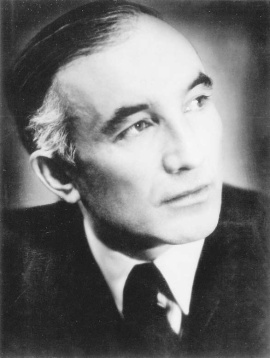
Hans-Martin Theopold (運指)
Prof. Hans-Martin Theopold, was born to a pastor’s family in Detmold on 22 April 1904, the youngest of five children. Even as a child he often played the organ in the “Marktkirche” and soon began to take piano lessons with Theodor Vehmeier. At the age of 17 he made his debut at the Landestheater in Detmold with Ludwig van Beethoven’s Piano Concerto in C major under Friedrich Quast (Herford). Following the successful completion of his schooling at the Gymnasium Leopoldinum in Detmold, he went on to study music and piano (main subject): from 1922–23 at the “Württembergische Hochschule für Musik” in Stuttgart (with Max Pauer, 1866–1945) and then from 1923–1928 at the “Staatliche Akademische Hochschule für Musik” in Berlin-Charlottenburg (with Richard Rössler, 1880–1962, and Waldemar Lütschg, 1877–1948). After completing his piano studies (graduating with “very good”) in 1928, he began an active solo career both at home and abroad (USA, Switzerland, Scandinavia, the Baltic states, the Balkans). As a member of the Chamber Music Association of the State Opera in Berlin (from 1933) he also gave countless chamber music concerts, including ones with his violin partner Gustav Havemann (1882–1960).
In the 1930s, audiences and the press alike raved about Theopold’s extraordinary gifts as a pianist: “This young player has it in him to soon become one of the best players in Germany. A superior technique, a wonderful singing piano tone, the strength of a Titan, but not at all hard due to the incomparably gentle elasticity of his touch” [Münchener Zeitung, 21 November 1933]. – “H.M. Theopold gave convincing proof of his splendid pianistic ability in an extremely gripping sonata with a modern idiom by Alban Berg, but predominantly in Schubert’s […] Wanderer Fantasy, which he played with a polished technique and creative power” [Weser-Zeitung, 21 December 1932]. Theopold was awarded several prizes, including the “Grotrian-Steinweg-Preis” in 1928.
In 1937 Theopold became a teacher for the piano (main subject) at the “Bayerisches Staatskonservatorium der Musik” in Würzburg. In 1939 he married Irene Tatjana Wülfing, who was from Moscow. From 1943 he became head of the piano master-class at the “Nordische Musikschule” in Bremen, although this was interrupted by the events of the war. Following his return from a prisoner of war camp, Theopold gave concerts and taught although he did not hold a permanent position. From 1955–1956 he was acting head of the piano master-class at the “Bergisches Landeskonservatorium” in Wuppertal, finally being appointed Professor for Piano on 1 April 1956 at the “Staatliches Institut für Schul- und Volksmusik” in Detmold, later at the “Nordwestdeutsche Musikakademie Detmold” (today “Hochschule für Musik Detmold”), where he taught for decades. On 30 September 1969 he retired. “His students extol his pedagogical gifts. […] Humour, charm, helpfulness and kind-heartedness moderate the strictness of his professional ethos as a musician and teacher” (Lippische Rundschau, 23 April 1969; see also: Lippische Landeszeitung 22 April 1969 on the occasion of Theopold’s 65. birthday: “Prof. Theopold, a modest but at the same time energetic man, is an enthusiastic teacher”). Theopold died in Detmold in 2000.
Contact with Günter Henle was established directly after the publishing house was founded, when Theopold thanked the publishers with great enthusiasm for its first Urtext editions. His extensive correspondence with the publishing house was bequeathed to the Lippische Landesbibliothek in 2014 to ensure its long-term accessibility to the public. The letters testify not only to Theopold’s great interest in musical sources and text questions but also to his initial strict refusal (!) of fingerings in text-critical editions such as these: “For fingerings are and remain something individual no matter what their quality” (letter to Günter Henle from 26 May 1949 {publishing house archives}). Günter Henle was not, however, to be swayed and stressed the necessity of fingerings in his Urtext editions: “It is better to publish the Urtext […] with fingerings that are not necessary for a few individuals, or that might even, I admit, be considered irritating here and there” (letter to Hans-Martin Theopold of 17 September 1953).
It was only in 1955 that Theopold accepted Günter Henle’s offer of contributing fingerings for an Urtext edition that was in the process of being prepared by way of trial. (HN 74, Schubert, Complete Dances for Piano, Volume 1). Following this, Theopold was commissioned to write the fingerings for nearly all of the publishing house’s new editions in quick succession. Günter Henle, himself a good pianist, greatly valued Theopold’s fingerings, and also the many suggestions regarding the musical text in question. In addition, Theopold was always very reliable, thorough and conscientious – something that is not unimportant with editorial work!
Thus to date Hans-Martin Theopold has provided the fingerings for the greatest number of Henle Urtext editions by far – 226 editions (!) in total.
We would like to thank Mrs Margot Theopold and the Hochschule für Musik in Detmold for their great support in providing biographical material.
G. Henle Verlag
おすすめ
autogenerated_cross_selling
このタイトルを含む他の版


